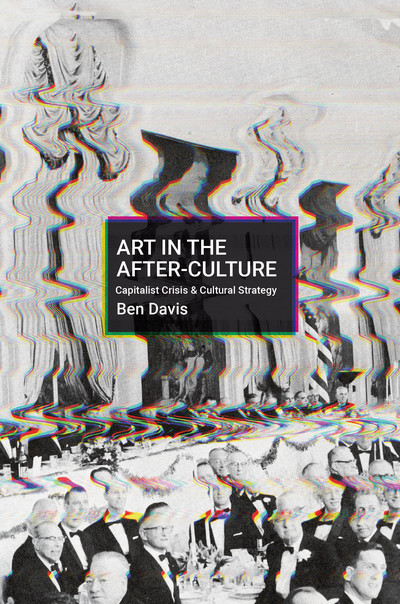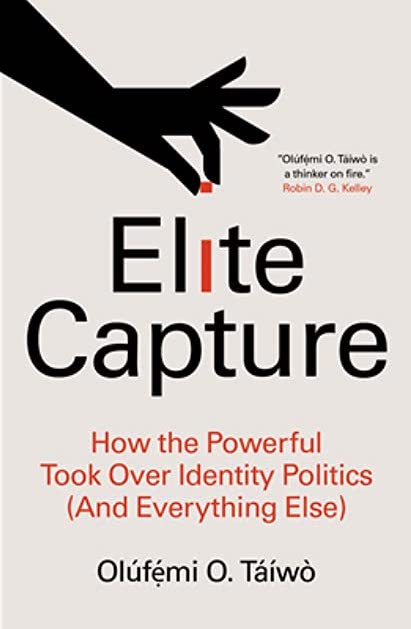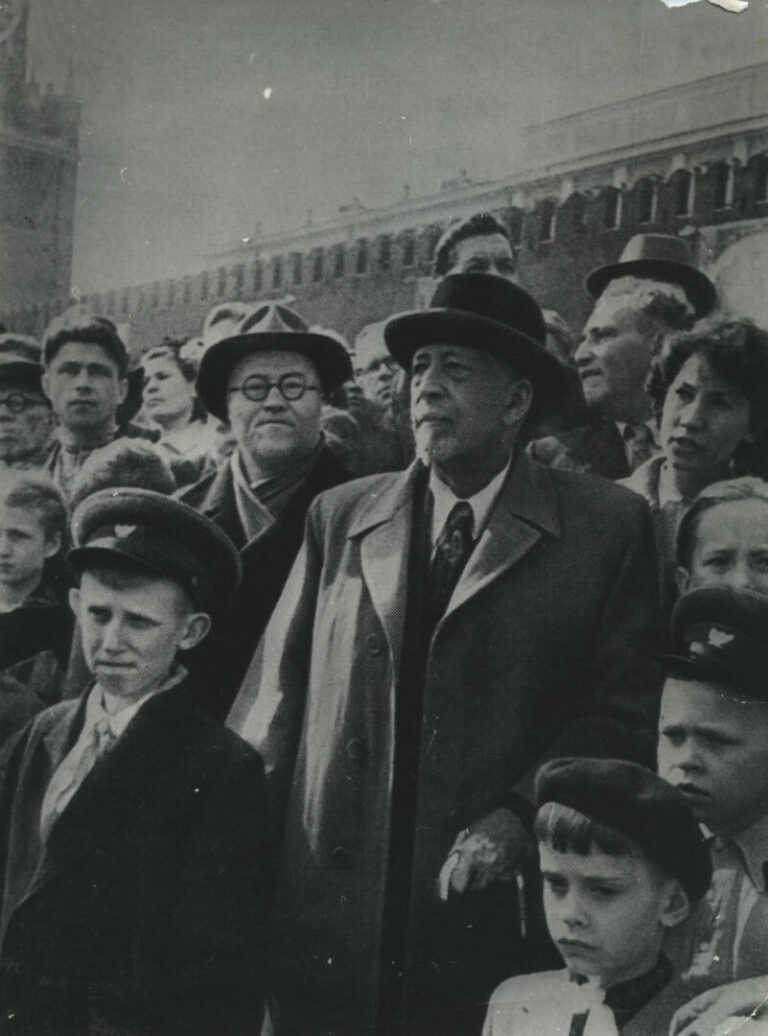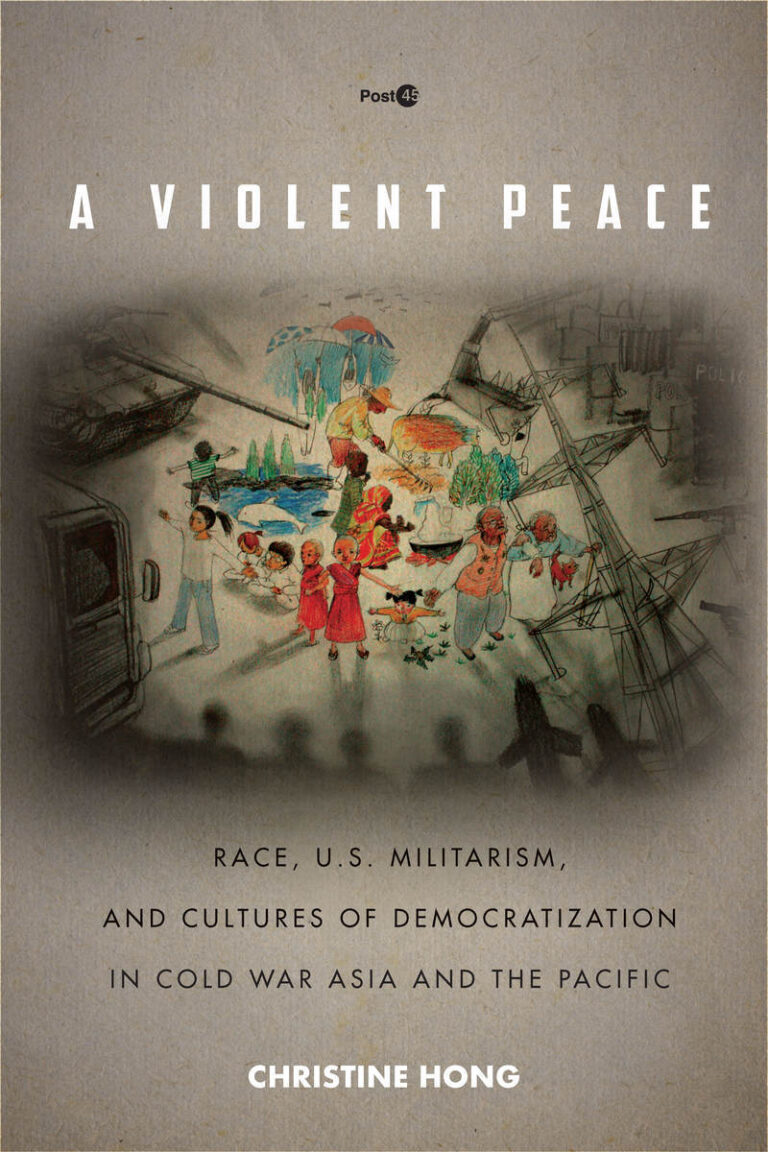The eight essays in Ben Davis’ Art in the After-Culture are centered on the interchanges between cultural production and economic development in contemporary society. Largely told through the lens of leftist aesthetic theory, the book pushes against exploitative notions of capitalist systems and ambitions towards decentralization. Davis likens art to a “survival kit” and advocates for creative practitioners to strategically influence the direction of society.
Keyword: democracy
Review of Elite Capture: How the Powerful Took Over Identity Politics (And Everything Else) by Olúfẹmi O. Táíwò (Haymarket Books / Pluto Press)
The discourse surrounding identity politics has become fraught with misunderstanding and co-optation by forces across the political spectrum. What was once a radical discourse initiated by the queer, Black, and Indigenous feminists of the Combahee River Collective has become a movement defined by incapacity, stigmatization, and misinterpretation. Olúfẹ́mi O. Táíwò sets out to clarify the nature of the identity politics movement and its relationship to the powerful institutions and individuals which have misappropriated the original radicalism of this idea to serve their own political gains. Through a materialist and narrative approach to identity politics and social critique, Táíwò argues that the problem is not with identity politics as such, but a specific power called “elite capture,” which stifles the potential latent in identity politics and genuine leftist social organizing. He concludes that, rather than deferring responsibility and accepting symbolic gestures of empty representation, we must begin to construct a new politics and a new house altogether.
“Revolution of Thought and Action”: W. E. B. Du Bois’s World Search for Abolition Democracy
In recent years, scholars and activists have brought renewed attention to W. E. B. Du Bois’s concept of abolition democracy. Initially coined in Black Reconstruction (1935), to describe both a political movement and a democratic ideal, abolition democracy has been taken up theoretically by Angela Davis, Allegra McLeod, and others to describe the ongoing process of dismantling global capitalism’s political, racial, gender, and economic hierarchies, alongside the simultaneous creation of reconstructed social relations, institutions, and practices governed by universal democratic participation, instead of by force. This article suggests that Du Bois continues to draw on abolition democracy as a conceptual framework in his post-Black Reconstruction work. Tracing the outlines of this framework in his unpublished manuscript A World Search for Democracy, I demonstrate how for Du Bois, the question of democracy remains fundamentally tied to the ongoing legacies of slavery. As he continues to draw on the Reconstruction era as an historical example, Du Bois gives further shape to the idea of abolition as a process in the present (rather than an event in the past). In doing so, he recuperates the unfulfilled promise of abolition democracy as a theoretical and practical model for considering alternatives modes of citizenship beyond the material, ideal, and embodied limits of liberal bourgeois democracy. Accordingly, I argue, in World Search, we can see the outlines of abolition democracy as a three-fold project: political-economic, epistemic, and affective. Each section of this article sheds light on one of these dimensions, drawing on theoretical models from Nancy Fraser, Sylvia Wynter, Sara Ahmed, and Dylan Rodríguez. By thus abstracting the concept of abolition democracy further from the historical movement analyzed in Black Reconstruction, I propose that Du Bois’s World Search offers lessons that can inform abolitionist theory and praxis today.
Review of A Violent Peace: Race, U.S. Militarism, and Cultures of Democratization in Cold War Asia and the Pacific by Christine Hong (Stanford University Press)
Christine Hong’s A Violent Peace examines local and global democratization projects and the many ways that postwar US military tactics and strategies functioned to suppress both counterrevolutionaries abroad in Asia and Black radicals at home in the US. Through literary and visual analyses of works by Ralph Ellison, Ōe Kenzaburō, Miné Okubo, Carlos Bulosan, James Baldwin, and W. E. B. Du Bois, Hong questions how to navigate US post-World War II policies that claim a period of democratized “peace” and racial integration while simultaneously dehumanizing “foreign” bodies through military tactics that police cultural and political belonging.
Neoliberalism, Racial Capitalism, and Liberal Democracy: Challenging an Emergent Critical Analytic
Response to Jodi Melamed, “Proceduralism, Predisposing, Poesis: Forms of Institutionality, In the Making,” published in Lateral 5.1. Aho pointedly argues that studies of institutionality all too often substantiate what she calls neoliberalocentrism, which readily posits neoliberalism as the singular paradigm into narrating a teleological development of history. Instead, she echoes Kim and Schalk to articulate ‘crip-of-color materialism’ as an analytic that thickens understandings about global structures of inequity and fissures within them.




